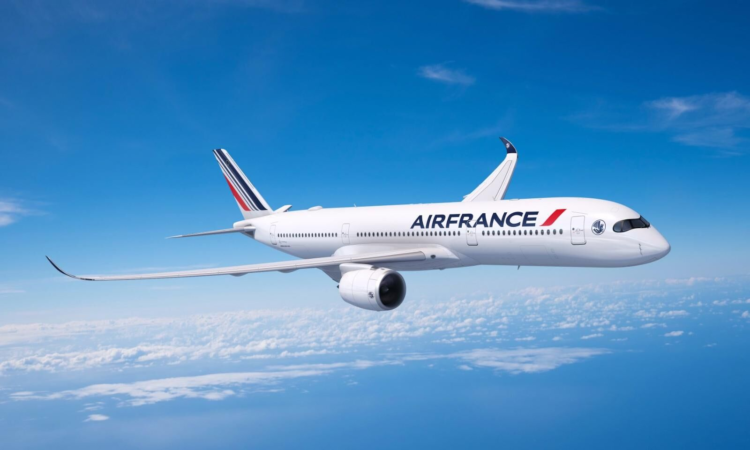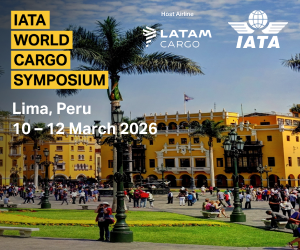Air France-KLM Group has revised its freighter fleet renewal plans, cutting its firm order for the Airbus A350 Freighter from eight aircraft to six. The move, announced this week, reflects a dual response to Airbus’s confirmed delays in the A350F’s entry into service and a broader reassessment of the group’s long-term cargo strategy in a changing market environment.
Under the updated plan, both Air France and Martinair—KLM’s wholly owned cargo subsidiary—will now take delivery of three A350Fs each, down from the four initially allocated per carrier. This adjustment reduces Martinair’s order book by one aircraft, with the revised delivery schedule yet to be disclosed.
Managing Delays While Protecting Operational Capacity
The A350F is intended to replace the group’s ageing fleet of Boeing freighters, specifically Air France’s two 777-200Fs and Martinair’s four 747-400Fs. The aircraft promises up to 40% lower fuel burn compared to older freighters and compliance with ICAO’s upcoming CO₂ emissions standards. However, with Airbus facing schedule slippages—partly due to supply chain pressures and the complexity of integrating a new freighter variant—the timeline for this modernisation has been pushed back.
In the interim, Air France-KLM Martinair Cargo is expected to extend leases on existing freighters to maintain service continuity across its global cargo network. The group’s present all-cargo fleet comprises two Boeing 777Fs and four Boeing 747-400Fs, supplemented by significant bellyhold capacity on its widebody passenger services.
Industry Context: A Broader Recalibration of Orders
Air France-KLM’s decision is consistent with a growing industry trend of adjusting aircraft commitments in light of market uncertainty. Earlier this year, Wizz Air reduced its Airbus A321XLR orderbook, citing changing operational requirements. In July, Air Lease Corporation—the A350F’s launch customer—canceled all seven of its orders, pointing to programme delays and a more conservative stance on large freighter investment amid fluctuating global trade flows.
Aviation market analysts note that the delays could inadvertently intensify competition. Carriers not locked into the A350F programme may seek earlier delivery slots for alternative types, negotiate better acquisition terms, or invest in interim capacity to capture market share while rivals await their next-generation freighters.
Strategic Implications for Air France-KLM
The order revision comes against a backdrop of broader corporate strategy shifts. Air France-KLM recently withdrew from its proposed acquisition of a stake in Air Europa and has doubled down on its “premiumisation” drive, focusing on high-yield cargo and passenger segments. For the cargo business, the emphasis is on maintaining a mixed-capacity model that blends the operational flexibility of bellyhold cargo with the route-specific advantages of dedicated freighters.
The decision to reduce A350F commitments also signals a disciplined capital allocation approach, prioritising resilience over rapid expansion. By pacing its fleet renewal, the group can respond more fluidly to shifts in demand patterns, regulatory requirements, and geopolitical trade dynamics.
Looking Ahead
Despite the reduction, Air France-KLM reaffirmed its long-term commitment to the A350F programme, describing the aircraft as a cornerstone of its future freighter operations. When the new jets eventually join the fleet, they are expected to deliver not only efficiency and emissions benefits but also competitive advantages in payload and range—critical factors as the group seeks to strengthen its position in the high-value, time-critical cargo market.
Until then, the focus will remain on sustaining operational stability, optimising existing assets, and leveraging its network reach to weather what is shaping up to be an extended period of uncertainty in global air freight.
Analysis: What Air France-KLM’s A350F Reduction Means for the Global Freighter Market
1. Market Signal on Next-Generation Freighters
Air France-KLM’s scale-back from eight to six A350Fs sends a clear message to the market: while demand for efficient, environmentally compliant freighters remains strong, delivery certainty is now a critical factor in fleet planning. Delays in the A350F programme may prompt other carriers to reassess the balance between new aircraft orders and extending the life of existing assets.
2. Competitive Opportunity for Rivals
Airlines such as Qatar Airways Cargo, Lufthansa Cargo, and Cargolux—already well-positioned with newer freighters or confirmed delivery slots—may be able to use this window to expand market share, particularly on high-volume transcontinental lanes. Early movers could lock in long-term contracts with shippers concerned about capacity stability.
3. Leasing and Interim Solutions in Demand
Expect a surge in demand for medium-term freighter leases, particularly for Boeing 777Fs and 747-8Fs, as operators fill capacity gaps. Lessors with available widebody freighters could command premium rates in the short term.
4. Wider Industry Repercussions
Air France-KLM’s adjustment follows similar moves by Air Lease Corporation and Wizz Air, suggesting a cautious approach across multiple aircraft categories. Combined with uncertain trade flows, fluctuating fuel prices, and geopolitical tensions, this creates a more risk-averse environment for large fleet investments.
5. The Sustainability Imperative Remains
While timelines may shift, the environmental performance of the A350F remains a strong draw. Carriers are still under pressure to modernise fleets to meet ICAO and EU emissions targets. The delay is a pause, not a retreat, from the industry’s push toward cleaner, quieter, and more fuel-efficient freighters.





